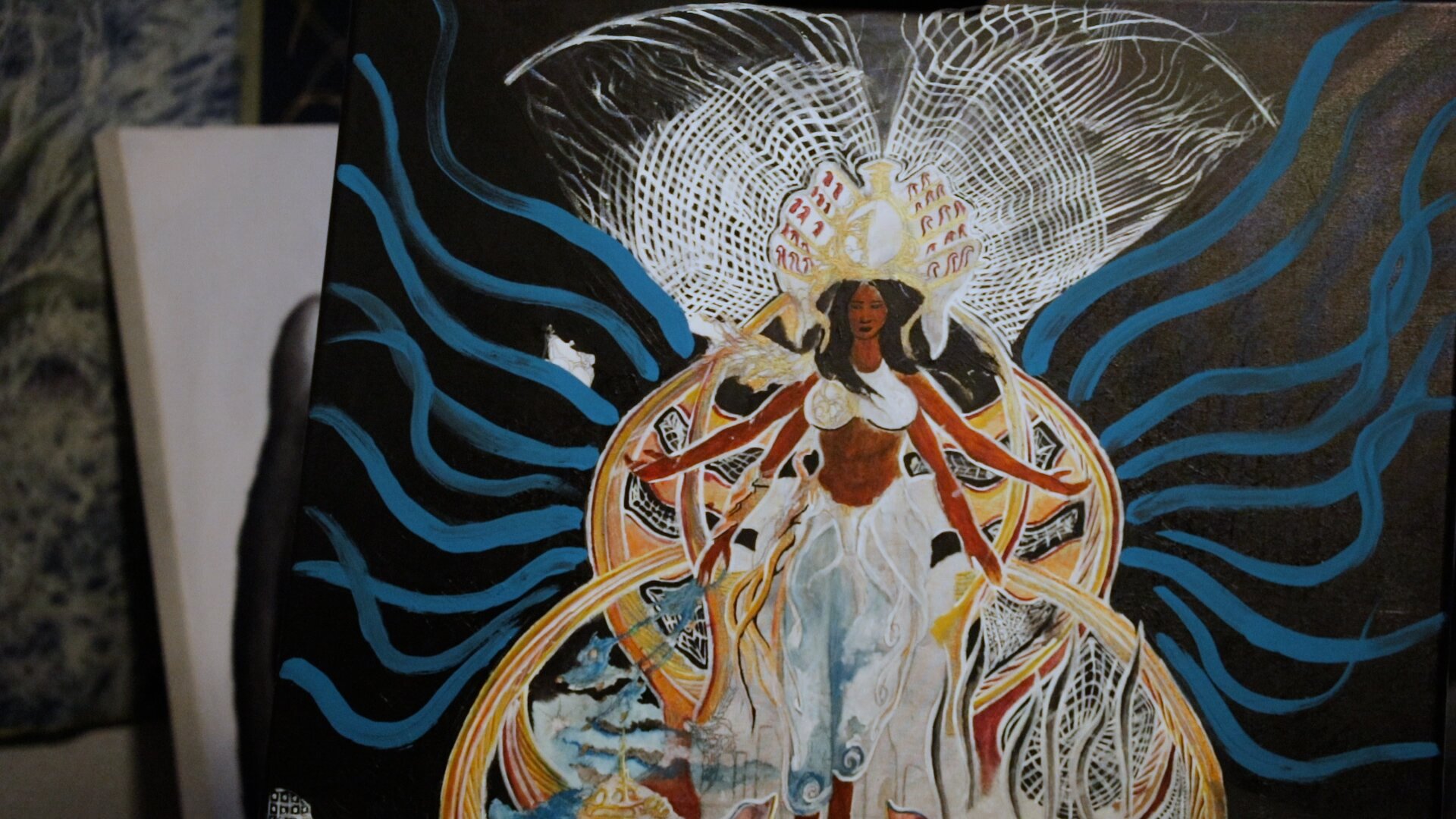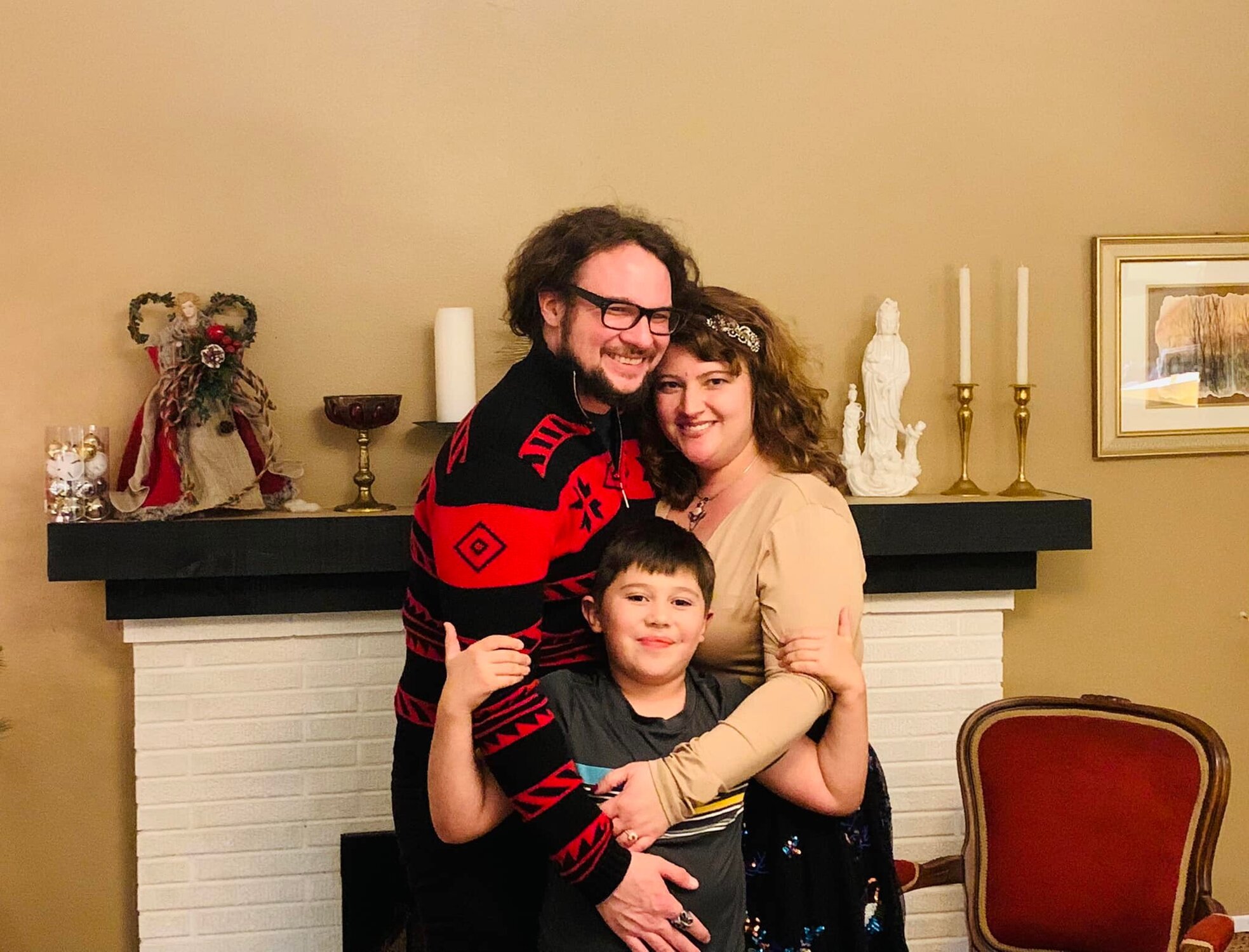A hero's journey: How embracing Autism helped a Colorado artist carve out his own destiny

DENVER — Matt Maes basked in the light of his front window under the warmth of his family dog while he explained one of his many paintings. He has always had a vivid imagination, but the simplicity and safety of this moment was once beyond his wildest dreams.
Maes has been an artist since childhood. He remembers the exact moment when something lit up in him, guiding him toward the path he is on today.
Around age 7, Maes and his best friend were taking a break from playing video games, when his friend handed him a pencil and a piece of paper. He did his best to draw the nearby Super Mario 64 game, and something was ignited.
“I just had this amazingly euphoric feeling,” Maes said. “So that's the feeling that I've been chasing ever since.”
Eventually, the euphoria that art brought Maes would act as a map toward realizing his full potential.
A challenge, a road map, or both?
Maes was diagnosed with Asperger's at the age of 18, a chapter he recalls being exceedingly difficult.
Asperger's is a condition on the Autism spectrum that’s considered “high functioning,” meaning it can involve strong verbal skills and high intelligence. People with Asperger's can experience things like hyper-focus on specific topics, but face challenges with social interactions despite their intellect and verbal abilities.
“At the time I was going through a ton of mood swings,” Maes recalled. “I would get so anxious in front of people. I would get into a group of people and just feel this tension. And I felt at that time, like arts and music were really the only things that I could hold on to as I was severely, severely depressed.”
With the diagnosis came a fear of being defined by a label.
“I don't want people to feel pity. I want people to see me as I am. And that's actually something that has held me back from announcing to the world that I have Asperger's. Frankly, I just want you to treat me like a normal person.” Maes said.
While art could be considered Maes’ “hyper-focus,” an attribute often considered a challenge with Asperger's, he was able to lean into that characteristic and build a fulfilling career around it.
“26 years I've been drawing; 26 years I've been an artist. And it's all started with this intense interest, this intense curiosity," he said. "Just genuinely, down to my bones, I love art.”
Maes also emphasizes the importance of art in healing for others, highlighting how vital it is for humans to have an outlet for expressing themselves.
"The antithesis of depression is expression,'" he quoted.
Building connection through art
Now, Maes is a full-time artist, a title many aspire to have. He stays busy running his business, Quantum Keyhole, and is a founding member of the Octopus Movement, an international nonprofit with an emphasis on neurodiversity and inclusivity.
Maes' works are inspired by myths and legends from various cultures. They involve elaborate paintings heavy with mythologic symbolism.

A piece from Maes' ongoing "Goddess Series."
“Greek is awesome. But myth is so much broader than that,” Maes explained. "Every region of the world has mythic representations, and I think that's really deep and really speaks to the universalness of these different myths, in ways that tie into the human psyche."
Maes’ paintings are featured exhibitions around the city in coffee shops, retail stores and galleries, and has been part of events like the Five Points Jazz Festival and Indigenous X.
And while Asperger’s may have helped lead Maes to art, the opportunities art afforded him helped Maes build the confidence to pursue connection, something he felt Asperger's had gotten in the way of inthe past.
“Something that I've found has been tremendously helpful over the years has been finding ways I actually enjoy communicating with people,” he reflected. “Places I like to be that encourage that growth, that encourage that social development for myself."
Maes said that building confidence was the fuel he needed to be persistent in following his dreams. “I think about it like if you're picking away at an ice wall, you've got your pickaxe in and you hear that crack in the ice and you just want to swing that much harder.”
He also attributes a some of his success as an artist and community member to the guidance he found through the Reach program at RedLine Denver, where he’s now a vital member of the Core Artist program.
Reach provides supplies, career guidance and opportunities with little to no barriers to entry, ensuring that many folks who don’t have access to the basic necessities for building an artistic career are able to pursue their careers with the support of community.
“We've been able to create together, have all different types of exhibitions, all these opportunities and as the name implies, extends the ‘reach’ of our creative powers.” Maes explains.
Reflecting on the journey
Something that excites Maes just as much as art is his new chapter as a family man. He was recently married to his wife Helena and now fathers 9-year-old Xavier, who is a huge fan of Maes’ character depictions and rich imagination.

Maes, his wife Helena, and their son Xavier
In fact, Xavier and his friends commissioned a piece by Maes, complete with each child’s superhero alter-ego and a full story arc. A perfect fit for Maes’ artistic style.
“I've always been drawn to the hero's journey,” Maes said. “I've always loved storytelling.”
Maes became emotional taking in the surroundings of a home still fairly new to him, especially as he reflected on the trials he had faced to get there.
“In a lot of ways I lived to avenge that 18-year-old, depressed kid that didn't know where he's going, didn't know is this true self,” Maes reflected.
If he could give that younger self any advice, it would simple be to keep trying. He says this was a value his father was consistent in teaching him growing up.
“The number one predictor of success is persistence,” Maes shared. “It's not your brains, it's not your level of skill. It's just keeping on going.”
As for his advice to others who want to chase their dreams? “Find what you love and surround yourself with it.”
Elle Naef is a digital media producer at Rocky Mountain PBS. You can reach her at ellenaef@rmpbs.org.
Alexis Kikoen is the senior producer at Rocky Mountain PBS. You can reach her at alexiskikoen@rmpbs.org.